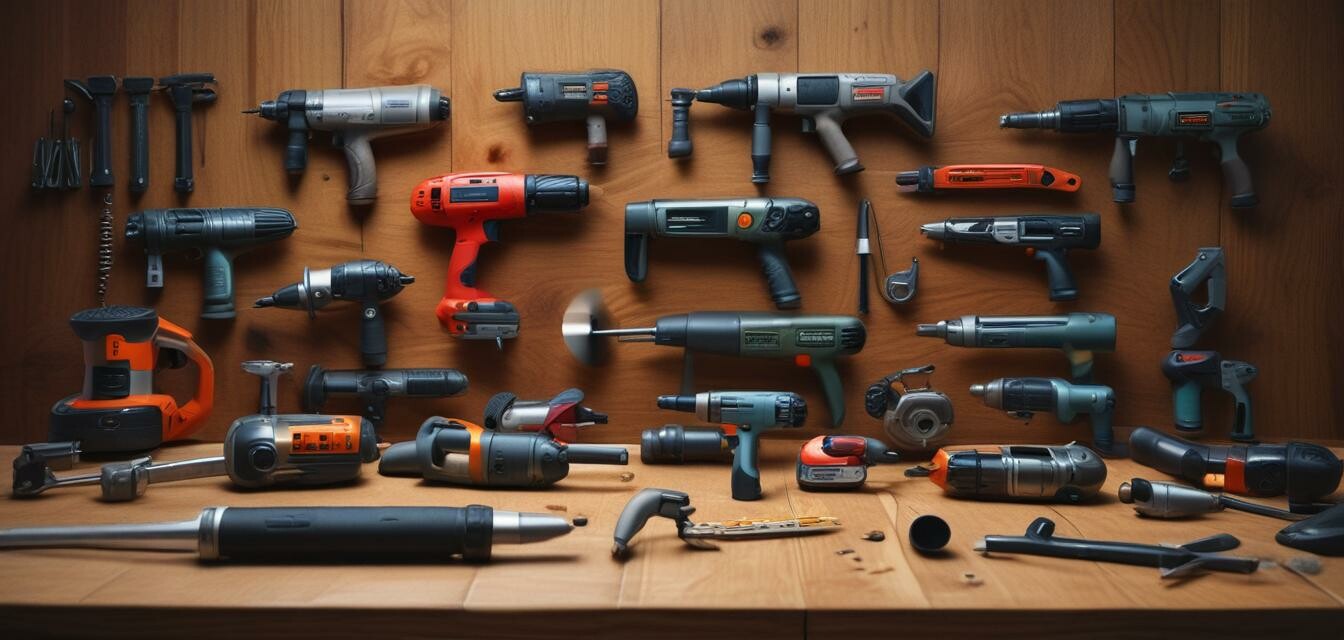
Comparing Cordless vs. Corded Tools: Which Is Better?
Key Takeaways
- Cordless tools offer mobility without the hassle of cords.
- Corded tools provide consistent power for extended use.
- Your choice depends on project type, convenience, and power needs.
- Consider battery life and availability of power sources for cordless tools.
- Evaluate your workspace to determine which option is more practical.
When it comes to power tools, the debate between cordless and corded options is ongoing. Each type has its benefits and drawbacks, making it essential for consumers to weigh these before making a purchase. In this article, we'll analyze various factors to help you make the best decision for your needs.
Understanding cordless tools
Cordless power tools are battery-operated, which grants freedom of movement and increased accessibility. They are favored by DIY enthusiasts and professionals alike for their ease of use. However, they do come with some considerations.
Pros and cons of cordless tools
Pros
- Great for working in locations without power outlets.
- Lightweight and portable, easy to carry around.
- Minimal risk of tripping over cords.
- Quieter operation than many corded models.
Cons
- Battery life can limit the duration of work.
- Recharge times can be inconvenient.
- Some models may not have the same power as corded counterparts.
Understanding corded tools
Corded power tools run directly from an electrical outlet. They are often preferred for their power consistency and longevity during use. However, they also have their own set of pros and cons.
Pros and cons of corded tools
Pros
- Continued power without the worry of battery life.
- Better performance for high-demand tasks.
- No need to wait for recharge times.
- Often more affordable than cordless versions.
Cons
- Restriction due to cord length and power outlet location.
- Higher risk of tripping hazards on job sites.
- May need an extension cord for larger work areas.
Comparison table of cordless vs. corded tools
| Feature | Cordless Tools | Corded Tools |
|---|---|---|
| Power Source | Battery | Electrical Outlet |
| Mobility | High | Limited |
| Run Time | Limited by battery life | Unlimited as long as plugged in |
| Performance | Good but may vary by model | Consistent, generally stronger performance |
| Maintenance | Battery needs regular care | Lesser maintenance required |
Choosing the best option for your needs
Your decision between cordless and corded tools largely depends on your individual requirements. Consider the types of projects you'll undertake, the locations where you'll be working, and how frequently you'll use the tools.
Questions to ask yourself
- Will I be using these tools remotely or in various locations?
- How demanding are the tasks I plan to undertake?
- Do I have access to power outlets during my projects?
- Am I willing to invest in extra batteries for cordless tools?
- How often will I need to recharge to finish a job?
Conclusion
Both cordless and corded power tools have their unique advantages and limitations. It's essential to assess your specific needs, project requirements, and workspace to make an informed choice. For more details, check out our guides on Buying Guides or Cordless Power Tools. With the right information and tools, you can tackle any project with confidence.
Helpful tips for beginners
Tips for beginners
- Start small: Invest in a few key tools to get started.
- Research: Read product reviews to understand performance.
- Practice: Familiarize yourself with tool operations in safe environments.
- Safety first: Always prioritize safety when working with any tools.
- Join communities: Engage with fellow DIY enthusiasts and learn from their experiences.